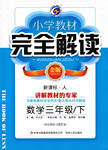题目内容
Good health is the most valuable thing in the world. When you’ve got it, you never think about it. When you haven’t got it, you think about it all the time. Our biggest enemies are not terrible diseases and so on. We are our own biggest enemies because we sometimes destroy our own good health. Some of us eat too much, drink too much and smoke too much. And though our reason tells us we should control ourselves, we find it difficult. The fact is that most human beings need stimulation (刺激). Who doesn’t enjoy a drink after a busy day? Only a smoker knows the pleasure of a cigarette with a cup of coffee.
The danger is when these innocent pleasures run our lives and so destroy our health. When you find yourself eating between meals or eating too much rich food, when you can only keep yourself going by taking frequent (频繁的) drinks or by smoking one cigarette after another, then it’s time to stop and think what you might be doing to yourself. The funny thing is that when we don’t control ourselves, simple pleasures are no longer simple pleasures.
All right, I know what you’re thinking. You’re probably saying, “It’s easy to say, but I can’t help myself. I need that extra bit of food, that extra drink, that extra cigarette. Life has so many pleasures that I can’t do without them.” But I’m saying you can help yourself. Not only that, you must help yourself. Because if you don’t help yourself, no one else can. So be your own best friend.
1.The underlined word “innocent”(in Paragraph 2) means ________.
A. not having done something wrong
B. exciting or cheering
C. not having much experience
D. not expected to cause harm
2.This passage is mainly about _______.
A. terrible diseases and so on
B. enjoying pleasures after a busy day
C. the difficulty of controlling ourselves
D. the danger of too much drinking, smoking and eating
3.“I can’t help myself” means ____________.
A. I can’t do it myself
B. I must ask someone to help
C. I can’t control myself
D. Do help me, please
 步步高口算题卡系列答案
步步高口算题卡系列答案 点睛新教材全能解读系列答案
点睛新教材全能解读系列答案 小学教材完全解读系列答案
小学教材完全解读系列答案
